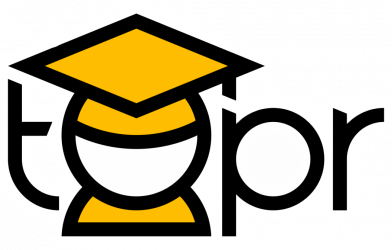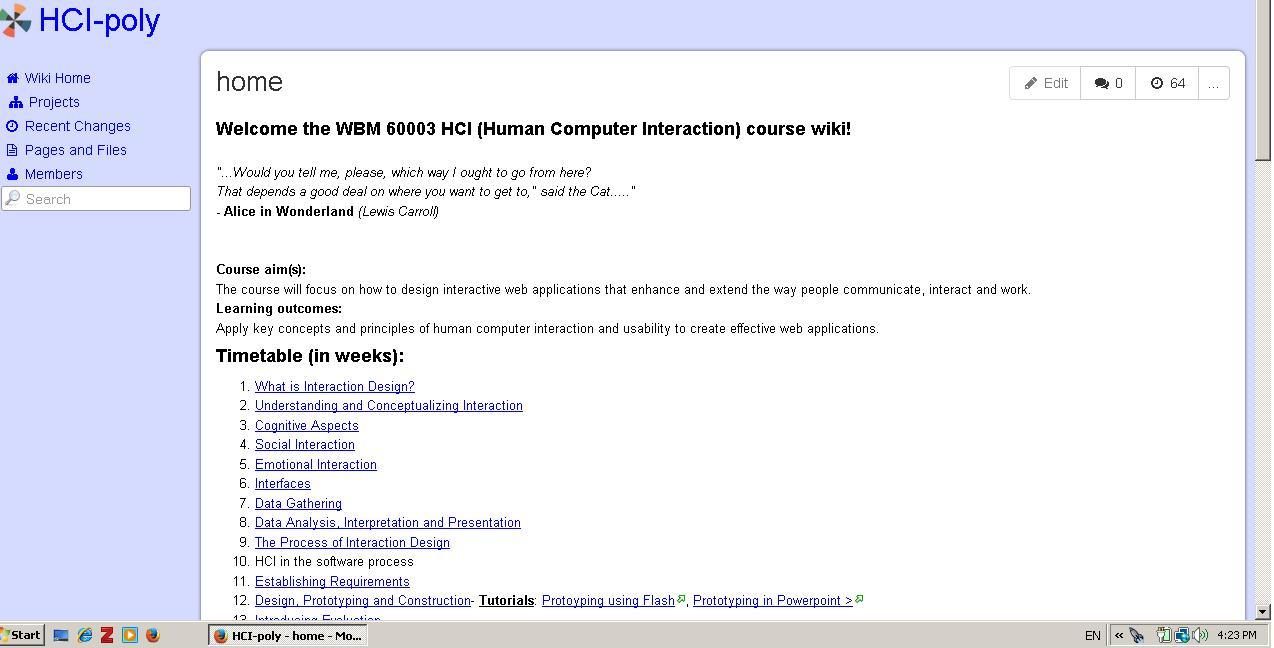Tags: Collaborative Learning, Constructivism, Interaction, Scaffolding, Social Media, Social-Constructivism, Web2.0, Wiki
Description
A Wiki is a website that offers the capability for users to easily create and edit pages collaboratively. As such the Wiki technology has the potential to facilitate and enhance online collaboration and provides Higher Education with new prospects for collaboration, knowledge creation and student interaction. The main feature of a Wiki is the ability to engage users in a collaborative visit, read, re-organize, and update functions and the option for updates and editing by contributors with different access rights. Moreover research studies on the use of Wikis in Higher Education (Su & Beaumont, 2010) revealed that the Wiki is an effective tool for collaborative learning, writing and knowledge creation and management. The use of a Wiki in education is essential with careful consideration on the plan of use in combination with the appropriate pedagogy. Whilst it is outlined the need for further research on students’ views on adopting a Wiki and the potential of promoting a social constructivist learning approach.
Link to example artifact(s)
Human Computer Interaction Course
Dr. Vasileios Paliktzoglouand and Dr. Charilaos Alexakis adopted Wiki as a learning aid in blended learning course for both undergraduate and postgraduate (MBA) students cohorts studying at Intercollege (Larnaca campus), a college of Higher Education in Cyprus. The course followed another study by Su & Beaumont (2010) based on Salmon’s (2006) five-stage model aligned with social constructivism related to a learner’s experience using new learning approaches.
As mentioned by Su and Beaumont (2010), Salmon’s five stages are identified as access and motivation (stage 1), online socialisation (stage 2), information exchange (stage 3), knowledge construction (stage 4) and knowledge development (stage 5). The cohorts were introduced to the Wiki and were provided with initial training. They were further instructed to: become familiar with the Wiki as a platform and use it as a Learning Environment & study aid, communicate using the forum, create course material / notes, create and upload worked examples with full solutions, collaborate & share. They had to keep updating the aforementioned material, iteratively and incrementally as their course was progressing. The Wikispaces farm (http://www.wikispaces.com/) was selected as it provided extensive functionality including the incorporation and use of other Web 2.0 tools, user authentication, tracking contributions and providing revision control. A Wiki farm is a Wiki hosting service that simplifies the creation and further development of independent Wikis.
A significant amount of time and effort is required by the course instructor to moderate the Wiki especially in big cohorts where there can be more than 30 contributors. Of course, as Wiki contributors become more experienced, less instructor input is anticipated. We could argue that as the Wiki gets widespread in higher education this will lead to students being more experienced users. Meanwhile, other experienced Wiki users could be assigned as moderators besides the course instructor (teaching assistants, experienced members of the cohort etc) in order to reduce the workload.
As the Wiki Turns
The use of scaffolding helps students become familiar and comfortable in a technology before using it for graded assignments. Dr. Judy Lee of Education (UCF) uses scaffolding to teach students how to use wiki in a low-pressure environment. Her assignment, “As the Wiki Turns”, gives her students the first sentence of a story. She then encourages the entire class to add and edit to the story. As the Wiki Turns: http://web.archive.org/web/20090719195523/http://eme6807.wikispaces.com/EME+6807 . Or view the PDF copy of the File:Eme6807wiki.pdf.
Link to scholarly reference(s)
Alexakis, C., Paliktzoglou, V., & Suhonen J. (2012) Assessment of the familiarity, adoption and use of educational technology by higher education students in Cyprus In: Design Thinking in Education, Media + Society Edited by: C Vrasidas, P Panaou.
CommonCraft.com (2005). Wikis in plain English [Video File]. http://www.youtube.com/watch?v=-dnL00TdmLY
Lamb, B. (2004). Wide open spaces: Wikis, ready or not. EDUCAUSE Review, 39(5) 36–48. https://er.educause.edu/articles/2004/1/wide-open-spaces-wikis-ready-or-not
Su, F., & Beaumont, C. (2010). Evaluating the use of a wiki for collaborative learning. Innovations in Education and Teaching International, 47(4), 417-431.
Salmon, G. (2006) Above the parapet for e-learning: recognition, reward and celebration. International Journal of Learning Technology, 2(4), 342-356.
WikiSchool (2004). http://www.communitywiki.org/cw/WikiSchool


